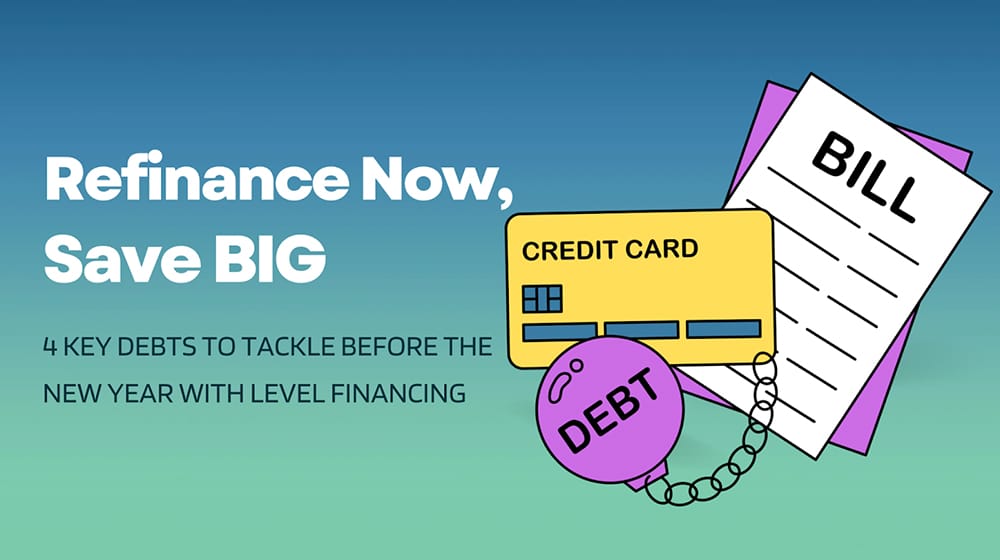Retirement planning is hard for many people. So much so that most people skip that part.
In fact, 62% of adults aged 50 and older have never gotten professional retirement advice.
With stats showing the median retirement age expectation is 67 and 56% end up retiring sooner than planned, it seems risky to avoid professional advice. For Gen X nearing retirement, the outlook based on their savings is concerning – the median household only has $40,000 saved. Half of Gen X have fewer than a few thousand dollars saved and often lack access to retirement plans at work.
With such low balances, 35% say they don’t have enough savings to warrant advice and 30% feel they can’t afford it. However, getting professional help to boost financial literacy and maximize returns on savings could make a big difference in retirement outlook. The key question for many is whether to seek out that professional guidance or go the do-it-yourself route.
The Complexities of Retirement Planning
Retirement planning requires taking into account many interconnected financial, legal, health, and lifestyle factors. Some key considerations include:
- Calculating your retirement income needs 20-30 years in the future based on your desired lifestyle. This requires estimating the cost of living with inflation.
- Understanding how to maximize Social Security benefits – the timing of when to claim benefits can significantly impact monthly income.
- Investing retirement savings to yield adequate returns while balancing market risk and volatility. This requires knowledge of asset allocation strategies.
- Planning for healthcare costs can be extremely expensive in retirement. This includes Medicare, long-term care costs, and prescription drug costs.
- Factoring in your life expectancy along with your spouse’s. 10 – 20 – 30 years, set the target!
Key Takeaway: Retirement planning gets complicated real quick with so many moving pieces around investing, healthcare, taxes, and leaving money to your family for a secure retirement over decades.

Pros of Seeking Professional Advice
Since it is complicated, guidance from a dedicated financial advisor can help. Some key advantages include:
- They look at the whole picture and build you a customized plan that ties everything together. It’s like having an expert quarterback to call the perfect plays for your financial team.
- A good advisor really takes the time to understand your personal situation. They get what you need for retirement based on your specific goals, time horizon, and what risks you can handle.
- Then, they design a playbook to maximize your chances of winning.
- They know the rules and have research and insights you don’t. Plus, they keep you disciplined, so you don’t freak out and sell everything when markets tank.
Key Takeaway: Advisors protect you from messing up, like investing too risky or buying products you don’t need. It’s nice having a wise financial guru in your corner calling the shots.
Cons of Seeking Professional Advice
Even so, financial advisors aren’t perfect. There are some downsides to think about before you hire one.
- Cost – First, they don’t come cheap. Advisors usually charge 1-2% of the assets they manage for you. When your retirement account is small, those fees feel pretty steep. No one wants to see their hard-earned money chipped away at.
- Variable expertise – Not all advisors are equal. Some may not have adequate expertise or use outdated planning strategies and tools.
- Biased recommendations – Advisors paid on commissions have incentives to push products that pay them more, like expensive annuities or whole life insurance.
- Limited services – Some only advise on investments and don’t provide tax, estate or healthcare planning. So you may still need to find other specialists.
- Loss of control – If you are very hands-on, delegating your finances to an outside advisor may feel uncomfortable.
Key Takeaway: Potential cons like high costs, incompetent or unethical advisors, limited services, and loss of control need consideration when choosing to work with a retirement planner.
DIY Retirement Planning
For those unwilling or unable to pay for an advisor, self-directed retirement planning is an option. Some tips for going the DIY route:
- Learn the basics through books like The Complete Guide to Planning Your Estate and The Little Book of Common Sense Investing. Online courses can also provide foundations.
- Use retirement calculators from your 401k provider or sites like Fidelity to estimate income needs and play with different scenarios.
- Seek free planning tools from your employer’s 401k, IRA provider, insurance broker, or financial institution. Many now offer basic digital advisory services.
- Follow personal finance blogs and podcasts for tips from experts.
- Automate investments by using target date funds in your 401k or signing up for a robo-advisor.
Key Takeaway: Self-directed retirement planning is possible but requires significant time commitment to gain financial knowledge plus discipline to actually implement the strategies.
Making the Decision
Determining if you should seek professional retirement planning advice depends on several factors:
- Your comfort level with finance and investing – if numbers make your head spin, an advisor can translate it into plain English.
- Your time availability – if you have limited time and interest in managing your own finances, it may be worth paying an expert.
- The complexity of your situation – if you have lots of assets, tax complications, or own a business, an advisor may be critical.
- Your temperament – if you are prone to rash or emotional decisions, an advisor can provide detached guidance.
- How much risk can you tolerate? If big swings in your portfolio value will make you anxious, an advisor can optimize your asset allocation.
For many pre-retirees, a hybrid approach works best – using an advisor as needed while still being actively involved in their own planning. As with most big decisions, there is no one-size-fits-all answer.
Key Takeaway: The choice of using a retirement planning advisor depends on your financial knowledge, time availability, situation complexity, temperament, and risk tolerance.

Final Thoughts
Preparing for retirement requires navigating a complex maze of financial, tax, insurance, healthcare and estate planning issues. While many pre-retirees prefer to go it alone, working with a competent, ethical advisor can provide tremendous value.




